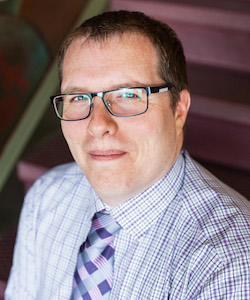By: Robert J. Joustra
This fall, the Review of Faith & International Affairs will be publishing a review of two important new books from critics of the freedom of religion or belief: Saba Mahmood and Elizabeth Shakman Hurd. My full review will be in that issue. One of the orienting questions I had reading these books was: What exactly is the problem with religious freedom? Why, of all the human rights available on the panacea of rights advocacy, has this, still relatively minor right, managed to achieve the status of a super-right worthy of such sustained criticism?
To read these books and then to hear, for example, Thomas Farr’s testimony in 2013 that it is
difficult to name a single country in the world over the past fifteen years where American religious freedom policy has helped to reduce religious persecution or to increase religious freedom in any substantial or sustained way
is an exercise in contradiction. Which is religious freedom advocacy? An industrial complex and career maker, or an obscure if rising corner of human rights advocacy in the political offices of the globe?
That empirical puzzle is the least interesting part of these books, however. It is, I think, fair to say that the problem is not religious freedom at all, or even human rights, but liberalism and the secular state. Religious freedom is just the tip of the iceberg. Beneath the surface lies the religious and the secular itself, the Treaty of Westphalia, and a whole genealogy of “the constitutive values” of liberal democracy. From the forthcoming review:
Hurd’s conclusion is that religious freedom privileges some forms of religion—whether beliefs, modes of being or knowing—and dis-privileges others. Is that really the fault of religious freedom, or is that the natural consequence of sovereignty and of political secularism?
The state, Hurd is at pains to show, is not neutral because it privileges certain kinds of beliefs and being. But of course it does. The “neutrality” of the secular state is not an intellectual innocence. It is a political community that has very definite opinions about certain kinds of beliefs and behaviors, and the suggestion that it was ever intended to be an open-cosmopolitan social space seems historically naive. That, for example, Hurd could write “the wrong kind of religion is an object of reform and discipline” (27) and this could shock us means we missed the prior postmodern lesson that politics are alwaysmoral, that what a political community means by justice—the good of politics—is hardly “neutral” in an intellectual sense. There is no such thing as good or bad religion, argues Hurd (Hurd, 120), except—of course—when we get busy situating ourselves in a tradition, or moral position, then some kinds of belief and being and knowing are good. And some are bad.
This is where postmodern polemics sometimes hit a snag, because we know that we are already situated in such a sense, whether we are busy attending to it or not. This is Charles Taylor’s point in A Secular Age about the “modern social imaginary”: that we were in the business of having understandings of and practices in the world long before we got into the business of theorizing about them. What is Hurd’s social imaginary, then?
I believe it is one whose moral hierarchy counts diversity and equality as its chief aims. The fundamental problem with religious freedom, then, is the same as the problem with human rights generally. Quoting Talal Asad, she writes that religious freedom “usurps the entire universe of moral discourse, capturing the field of emancipatory possibility and effacing the distinction between law and justice” (Hurd, 64). This approach is deeply democratic, but it is not necessarily liberal. In fact, quoting Asad again, she writes “the modern idea of religious belief (protected as a right in the individual and regulated institutionally) is a critical function of the liberal-democratic nation-state but not of democratic sensibility” (Hurd, 108).
Therefore, if we disagree with Hurd about the conceptual use “religion” as a category for international politics the fulcrum of that disagreement becomes clear: It is probably because, like me, you are a liberal democrat, the values of liberalism accompanying and qualifying your democratic enthusiasm, whereas she is unapologetically a democrat. A democrat is a good thing to be, and I respect a thoroughgoing defense of values I also believe in, I just happen to think being a democrat, untethered from the limits of what Taylor calls the “constitutive values of liberal democracy” is a little riskier politics than I like to play.
The full review is forthcoming, but both these books are already available and for sale.
Robert Joustra is assistant professor of international studies at Redeemer University College in Ancaster, Ontario, Canada.
This piece was originally published on Arc of the Universe on May 17, 2016. It was later republished on May 19, 2016 for the Religious Freedom Project at Georgetown’s Berkley Center for Religion, Peace, and World Affairs.
THE RFI BLOG

Does Southeast Asia Lead the World in Human Flourishing?

RFI Leads Training Session on Religious Freedom Law and Policy for U.S. Army War College

Oral Argument in Charter School Case Highlights Unconstitutional Motives Behind OK Attorney General’s Establishment Clause Claim

Largest Longitudinal Study of Human Flourishing Ever Shows Religion’s Importance

Keys To Human Flourishing: Faith And Relationships Outweigh Wealth
CORNERSTONE FORUM

Reaffirming Religious Freedom: Bridging U.S. Advocacy and Iraq’s Constitutional Framework

Political Polarization, Same-Sex Marriage and Religious Liberty

Bridging the Gap Between International Efforts and Local Realities: Advancing Religious Freedom in the MENA Region

Challenges to Religious Freedom in Iraq and the Critical Need for Action


